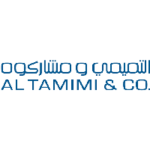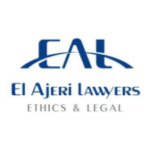-
Please briefly describe the current investment climate in the country and the average volume of foreign direct investments (by value in US dollars and by deal number) over the last three years.
The current investment climate in Egypt is encouraging for foreign direct investment. In an attempt to attract foreign investment, the government has implemented significant reforms, including a liberalized exchange rate, new tax breaks, “golden licenses,” and free-zone benefits. However, issues including inflation, a lack of foreign cash, and bureaucratic delays still exists.
Over the past three years, FDI inflows have averaged around USD billion annually, excluding exceptional “mega-deals.”
- 2022/2023: USD 10 billion.
- 2023/2024: spiked to USD 46.1 billion (mainly due to the Ras El Hekma mega-project).
- 2024/2025: USD 12.2 billion.
Deal activity has been steady, with roughly 70–80 investment and M&A deals per year, dominated by energy, manufacturing, finance, and real estate.
-
What are the typical forms of Foreign Direct Investments (FDI) in the country: a) greenfield or brownfield projects to build new facilities by foreign companies, b) acquisition of businesses (in asset or stock transactions), c) acquisition of minority interests in existing companies, d) joint ventures, e) other?
Investment Law No. 72/2017, Companies Law No. 159/1981, and Capital Market Law No. 95/1992 all allow the following types of foreign direct investment (FDI) in Egypt:
1. Greenfield and Infrastructure Investment: Foreign investors build factories, power plants, or logistics centers from the ground up. Examples include Scatec Solar (Norway) building a 1 GW solar power plant and the New Delta Wastewater Treatment Plant in El Dabaa. Both are large-scale Greenfield infrastructure projects. The Ras el Hekma mega deal between Egypt and the UAE is another major greenfield project with a total investment value of $ 35 billion.
2. Merger and Acquisition: Merger and Acquisition: Foreign investors acquire existing Egyptian companies, either through share or asset transactions. Foreign acquisition and ownership in key Egyptian listed firms include ADQ (Abu Dhabi Holding Company), which acquired significant stakes in Commercial International Bank (CIB) and Fawry e-payments.
3. Minority Shareholdings: For strategic or financial reasons, foreign companies buy non-controlling shares in established businesses. In this regard, Gulf investment groups are acquiring minority stakes in Egyptian fintech and tech companies such as SWVL and ValU.
4. Joint Ventures: Partnerships between foreign and local investors to establish jointly owned companies. JVs, such as ENI (Italy), which cooperated with the Egyptian General Petroleum Corporation (EGPC) to build and operate oil and gas exploration projects, bring together international capital and local expertise across key sectors.
5. Public-Private Partnerships: These collaborations take place when foreigners use long-term concession agreements to participate in utility and infrastructure projects. Egypt’s first PPP project, developed under a Build-Operate-Transfer (BOT) structure with IFC support, is the New Cairo Wastewater Treatment Plant.
-
Are foreign investors allowed to own 100% of a domestic company or business? If not, what is the maximum percentage that a foreign investor can own?
The Investment Law of Egypt 72 of 2017 grants foreign investors full rights to establish and operate projects. Egypt maintains an open investment climate that encourages FDI across most sectors of the economy. In this respect, Article 3 guarantees that a foreign investor receives the same treatment as a national investor, ensuring full equality between domestic and foreign capital. Furthermore, Article 6 provides that the foreign investor has the right to establish, expand, and finance the investment project without restriction, and own, manage, dispose of, and repatriate profits and capital abroad. In other words, the Investment Law allows a foreign investor to own 100% of a company or project’s capital, unless specific legislation provides otherwise. This general rule, however, has some exceptions, such as foreign ownership may be prohibited in sectors that raise national security concerns. For instance, land ownership in Sinai and border areas, as well as strategic sectors such as banking, insurance, media, and defense.
-
Are foreign investors allowed to invest and hold the same class of stock or other equity securities as domestic shareholders? Is it true for both public and private companies?
Foreign investors are allowed to invest and hold the same class of stock or other equity securities as domestic shareholders in public as well as private companies. As noted above in 3, there are, however, some restrictions imposed upon foreigners in certain sectors.
-
Are domestic businesses organized and managed through domestic companies or primarily offshore companies?
Most domestic businesses in Egypt are incorporated under Egyptian law as domestic entities. They are subject to Egyptian corporate taxation and governed by Egyptian accounting and reporting standards. According to Article (3) of the Companies Law No. 159 of 1981, “Every company incorporated in the Arab Republic of Egypt shall establish its principal place of business (head office) in Egypt”. However, unless an offshore company establishes a subsidiary, branch, or joint venture with a company incorporated under Egyptian law and officially registered with the General Authority for Investment and Free Zones (GAFI), it lacks the legal standing to conduct business in Egypt.
-
What are the forms of domestic companies? Briefly describe the differences. Which form is preferred by domestic shareholders? Which form is preferred by foreign investors/shareholders? What are the reasons for foreign shareholders preferring one form over the other?
The domestic companies in Egypt are divided into both personal and capital companies. However, capital companies are more common because they protect the personal assets of the shareholders, allow for free trading of stocks, operate under the government oversight to protect investors, and are professionally managed. They are divided according to the Companies’ Law 159 of 1981 into i) Joint stock companies, ii) Limited partnership with share companies, iii) One person companies, and iv) Limited liability companies.
I) A joint-stock company is a company whose capital is divided into shares of equal value tradable in the manner specified by law. A shareholder’s liability is limited to the value of the shares subscribed for.
- Minimum number of founders: Three (3) founders, who may be either natural persons or legal entities, provided that the natural persons have full legal capacity.
- Minimum issued capital: EGP 250,000.
• 10% of the capital must be paid at incorporation.
• This percentage must be increased to 25% within a maximum of three (3) months from the date of the company’s registration in the Commercial Register.
• The authorized capital may not exceed ten (10) times the issued capital. - Foreign ownership: Foreign investors may own up to 100% of a company’s capital, except where the relevant activity is restricted to Egyptian nationals or subject to a mandatory minimum Egyptian shareholding under applicable law. Such restrictions apply only to limited and specifically regulated activities, such as commercial agency.
II) A limited partnership with shares is a company whose capital consists of one or more shares owned by one or more general partners, and shares of equal value subscribed by one or more shareholders, which may be traded in the manner specified by law. The general partner or partners are liable for the company’s obligations with unlimited liability, while the shareholder is liable only up to the value of the shares subscribed.
- Minimum number of founders: Two (2), whether they are natural persons or legal entities, provided that natural persons have full legal capacity.
- Minimum issued capital: EGP 250,000.
• 10% of the capital must be paid at the time of incorporation.
• This percentage must be increased to 25% within a maximum of three (3) months from the date of the company’s registration in the Commercial Register.
• The maximum authorized capital may not exceed ten (10) times the issued capital. - Foreign ownership: Foreign investors may hold up to 100% ownership of the company’s capital, except in activities that are restricted to Egyptian nationals or those that require a minimum percentage of Egyptian participation as stipulated by law.
III) A limited liability company is a company in which the number of partners does not exceed fifty, each of whom is only liable to the extent of his share. The company may not be established, its capital increased or borrowed on its behalf through public subscription. It may not issue tradable quotas or bonds. The transfer of partners’ shares therein shall be subject to the partners’ recovery in accordance with the special conditions contained in the company’s contract, in addition to the conditions stipulated in this law.
- Minimum and maximum number of partners: At least two (2) and no more than fifty (50) partners are required, who may be natural persons or legal entities, provided that natural persons possess full legal capacity.
- Minimum capital: The capital is determined by the partners in the company’s Articles of Association and is divided into equal quotas, all of which must be fully paid upon incorporation.
- Foreign ownership: Foreign partners may own up to 100% of the company’s capital, except in activities restricted to Egyptian nationals or where a minimum Egyptian ownership percentage is required by law.
IV) A one-person company is a company whose capital is entirely owned by one person, whether natural or legal, provided that it does not conflict with its objectives. The founder of the company is not liable for its obligations except within the limits of the capital allocated to it.
- Minimum number of founders: the company is established and owned by one person.
- Minimum issued capital: EGP 1,000.
- Foreign ownership: Foreign investors may hold up to 100% ownership of the company’s capital, except in activities that are restricted to Egyptian nationals or those that require a minimum percentage of Egyptian participation as stipulated by law.
Egyptian domestic investors typically prefer Limited Liability Companies (LLCs) for their ease of formation, low capital requirements, managerial flexibility, and limited liability protection. On the other hand, Joint Stock Companies (JSCs) are generally preferred by foreign investors because of their transparent structure, convenience of share transfers, adherence to international business standards, and suitability for significant or foreign investments.
-
What are the requirements for forming a company? Which governmental entities have to give approvals? What is the process for forming/incorporating a domestic company? What is a required capitalization for forming/incorporating a company? How long does it take to form a domestic company? How many shareholders is the company required to have? Is the list of shareholders publicly available?
Which governmental entities have to give approvals?
The main government agency responsible for facilitating and supervising company incorporation in Egypt is the General Authority for Investment and Free Zones (GAFI). In addition to issuing the new company’s Commercial Registration certificate, GAFI works with other organizations to ensure compliance with the Companies Law and the Investment Law.
What is the process for forming/incorporating a domestic company?
Incorporating a domestic company in Egypt requires completing several essential steps. The process starts by selecting the company type and determining its capital, then drafting the Articles of Association and securing key documents such as a certificate of non-confusion for the trade name and a bank certificate confirming the capital deposit. Once all documents are prepared, they are submitted to the competent authorities, such as the General Authority for Investment and Free Zones (GAFI) and the Commercial Registry, to obtain the commercial registration and tax card.
What is a required capitalization for forming/incorporating a company?
The minimum capital required for the formation of a One-Person Company is EGP. 1,000. In the case of Limited Liability Company, the capital is determined by the partners, as there is no statutory minimum capital requirement. For a Joint Stock Company and a Partnership Limited by Shares, the minimum issued capital is EGP 250,000.
How long does it take to form a domestic company?
Registering a company at the General Authority for Investment and Free Zones typically takes around 3 weeks up to a month depending on the type of the company.
How many shareholders is the company required to have?
The minimum number of shareholders is one (1) for a One-Person Company, two (2) for an LLC or a Partnership Limited by Shares and three (3) for a Joint Stock Company.
Is the list of shareholders publicly available?
No, the public does not have complete access to the list of shareholders of Egyptian companies. Businesses must notify shareholders about their rights and shares. Through the General Authority for Investment and Free Zones (GAFI) or by getting in touch with the business directly, shareholders, particularly those who are shareholders, can get company records. However, the full list of shareholders may not be publicly available due to privacy and data protection considerations.
-
What are the requirements and necessary governmental approvals for a foreign investor acquiring shares in a private company? What about for an acquisition of assets?
Without prior government approval, foreign investors can purchase shares in Egyptian private firms. But the modification needs to be appropriately documented by the General Authority for Investment and Free Zones (GAFI). Notarization, regular security clearance for the new investment, and updating shareholder records are all part of the procedure. Once foreign ownership exists, the company must file a Foreign Direct Investment (FDI) report with
GAFI within 30 days and continue submitting quarterly and annual reports on its foreign investment status, according to Ministerial Decree No. 2731 of 2019. Non-compliance may result in fines. The company’s bylaws may also require internal corporate approvals, and further regulatory clearances may be needed if the purchase results in control or involves regulated industries.
GAFI approval is generally not required for a foreign investor’s acquisition of assets (as opposed to shares) from an Egyptian company, provided that the transaction does not involve the incorporation of a new Egyptian entity, an amendment to the seller’s corporate structure, or a change to its registered shareholders or capital.In such cases, the foreign investor acquires specific assets or business operations without affecting the ownership structure of the selling Egyptian company. However, asset acquisitions remain subject to applicable sector-specific laws, licensing regimes, and registration requirements, including (without limitation) approvals or registrations relating to real estate transfers, regulated activities, and licensed industries (such as telecommunications, industry, banking, or energy), where prior regulatory consent may be required before assets or licenses can be transferred, assigned, or renewed.
Large asset deals, however, that amount to the acquisition of a functioning business may trigger a Competition Authority (ECA) review under merger-control rules. When parties intend to participate in an “Economic Concentration” and their annual turnover meets or exceeds the statutory notification limits, they are required to obtain merger clearance in Egypt. Article 19 bis of Law No. 175 of 2022 states that the turnover thresholds are one of the following:
1. Domestic Thresholds: the combined annual turnover or the value of the combined assets of all the concerned persons in Egypt is more than EGP 900 million for the latest year of the last audited consolidated ¬financial statements and each of at least two of the concerned persons has an annual turnover in Egypt of more than EGP 200 million in the latest year of the last audited consolidated ¬financial statements.
2. International Thresholds: the worldwide combined annual turnover or the value of the combined assets of all the concerned persons is more than EGP 7.5 billion from the latest year in the last audited consolidated -financial statements and at least one of the concerned persons has an annual turnover in Egypt of more than EGP 200 million from the latest year in the last audited consolidated ¬financial statements.
Under the Egyptian Competition Law, an Economic Concentration refers to any transaction that results in a change of control or material influence over one or more entities, whether through a merger, acquisition, or the creation of a joint venture, that carries out an independent and ongoing economic activity. Material influence has been defined under the Executive Regulation No. 1120 of 2024 as including any of the following situations:
1. Ownership exceeding 25 percent of the total voting rights or share capital of another entity.
2. Ownership below 25 percent, when combined with other elements that could affect the target’s strategic or policy decisions, such as the percentage of voting rights held by the acquirer relative to the remaining voting rights, special or preferential voting rights, common shareholders between the acquirer and the target entity, or the appointment of representatives of the acquirer to the board of directors of the target entity.
In all cases, material influence is not achieved by owning less than 10% of the target entity’s total voting rights, shares, or capital stock, unless the acquiring person is among the three largest shareholders of the target entity.
As for the change of control, Egyptian Competition Guidelines has established certain situations where they constitute a change of control:
1. Act that leads to the ownership of 50% or more of the total voting rights or total shares or stocks of the capital of another person.
2. Act that leads to ownership or the right to use and exploit all or the majority of the assets of another person.
3. Act that leads to the acquisition of rights, which confer the ability to the controlling person to appoint the majority of the members of the board of directors or to control the decisions of the board of directors or the general assembly meetings.
4. Act that would result in more than half of the members of the board of directors or the general assembly becoming the same persons in both the acquiring and the acquired persons.
-
Does a foreign investor need approval to acquire shares in a public company on a domestic stock market? What about acquiring shares of a public company in a direct (private) transaction from another shareholder?
Foreign investors are permitted to freely purchase shares in Egyptian listed companies, whether through on-market trading or by private (direct) transfers between shareholders. There are no general restrictions under Investment Law No. 72 of 2017, which guarantees equal treatment between foreign and domestic investors and allows foreign ownership of up to 100%, except in specific sectors where limitations apply. When a shareholder purchases 5 % or more of a listed company’s shares, as well as every 5% increase, they must notify the EGX and FRA. Every investor who purchases more than 5% but less than 10% of the share capital or voting rights is required by Article 3 of FRA No. 178 of 2024 to notify the FRA within fifteen (15) days of the acquisition date. It is also prohibited to directly or indirectly acquire 10% or more of the issued capital or voting rights, or to increase ownership by 5% or any multiple of 5%, regardless of whether this increase happens in a single transaction or through multiple transactions, without first obtaining prior approval from the FRA. Furthermore, in accordance with Article 353 of the Executive Regulation of Capital Market Law No. 95 of 1992, a forced tender offer must be made if an investor exceeds the control threshold, which is usually around one-third of voting rights. Accordingly, no prior government approval is required, but disclosure and takeover rules under the Capital Market Law No. 95 of 1992, as well as the Financial Regulatory Authority (FRA) rules on disclosure and tender offers.
-
Is there a requirement for a mandatory tender offer if an investor acquired a certain percentage of shares of a public company?
A mandatory tender offer is triggered under Article 357 of the Executive Regulation of Capital Market Law No. 95 of 1992 when an investor, either individually or through related parties, obtains 33.33% or more of the share capital or the voting rights of the target company, or when an investor who holds between 33.33% and 50% of the shares acquires an additional 5% within twelve (12) months. The same rule applies to investors holding between 50% and 75%, and to those owning more than 75% who purchase a further 5% within the same period.
Protecting minority rights through a commitment to purchase the minority stake is also ensured by Article 357 of the Executive Regulation of Capital Market Law No. 95 of 1992. Accordingly, any shareholder, alone or through related persons, who acquires 90% or more of the capital and voting rights in a company, any other shareholder holding 3% or a group of shareholders, with a minimum of 100 shareholder, representing at least 2% of the freely tradable shares, may request the FRA, within twelve (12) months following the acquisition of the majority stake referred to, to notify them of a tender offer to purchase minority shares.
Article 356 of the Executive Regulation of Capital Market Law No. 95 of 1992 sets out the exceptions to the requirement to submit a mandatory tender offer. These exceptions include transfers of shares between family members, inheritance, wills, gifts, mergers, transfer of securities held by banks to settle debts, capital restructuring between related parties, acquisition by a financial institution to guarantee underwriting, capital reduction through cancellation of treasury shares, approval of all shareholders to sell, transfers of shares in subsidiaries of state-owned holding companies and capital increases provided they are not due to the purchase of subscription rights.
-
What is the approval process for building a new facility in the country (in a greenfield or brownfield project)?
Under Investment Law No. 72 of 2017, Companies Law No. 159 of 1981, Environmental Law No. 4 of 1994, Building Law No. 119 of 2008, and Industrial Licensing Law No. 15 of 2017, establishing a new industrial or commercial facility in Egypt, whether a greenfield project or a brownfield project, requires multiple coordinated approvals. The General Authority for Investment and Free Zones (GAFI), which grants the investment license and works with the Financial Regulatory Authority (FRA) on specific share-related permissions, is where the process starts. Investors must then obtain land allocation approval from the Industrial Development Authority (IDA) or the relevant land authority, followed by an Environmental Impact Assessment (EIA) approved by the Egyptian Environmental Affairs Agency (EEAA). After obtaining environmental clearance, the investor applies for a building permit from the local authority under the Building Law, and, if the project is industrial, an operating license from the IDA before commencing production. Notwithstanding the foregoing, the investor may be subject to additional regulatory steps, requirements, or licensing obligations, including—where applicable—the obligation to maintain an environmental register (environmental ledger) in accordance with Egyptian environmental regulations.
Under Article 20 of the Investment Law, projects in strategic sectors may also apply for a “Golden License,” which is a single, expedited approval given by the Council of Ministers that combines all required licenses, such as company formation, land allocation, building, and operating permits, into a single, all-inclusive authorization.
-
Can an investor do a transaction in the country in any currency or only in domestic currency? a) Is there an approval requirement (e.g. through Central Bank or another governmental agency) to use foreign currency in the country to pay: i. in an acquisition, or, ii. to pay to contractors, or, iii. to pay salaries of employees? b) Is there a limit on the amount of foreign currency in any transaction or series of related transactions? i. Is there an approval requirement and a limit on how much foreign currency a foreign investor can transfer into the country? ii. Is there an approval requirement and a limit on how much domestic currency a foreign investor can buy in the country? iii. Can an investor buy domestic currency outside of the country and transfer it into the country to pay for an acquisition or to third parties for goods or services or to pay salaries of employees?
Egypt’s banking law require that domestic transactions be conducted in Egyptian pounds (EGP), unless an exception applies. Article 212 of the Central Bank and Banking Sector Law No. 194 of 2020 states that transactions within the Arab Republic of Egypt shall be conducted in Egyptian pounds, unless otherwise stipulated in an international agreement, another law, or in cases specified by a resolution of the Board of Directors of the Central Bank of Egypt (CBE). Accordingly, payments for acquisitions, contracts, and salaries should be made in Egyptian pounds, unless the CBE requires approval.
That does not contravene the investor’s right, as stated in Article 6 of Investment Law No. 72 of 2017, to set up, establish, expand, and fund an investment project from abroad, with no restrictions and in foreign currency. Additionally, without affecting the rights of third parties, the investor will have the right to own, manage, use, and dispose of the project; to make profits from it and transfer those profits abroad; and to liquidate the project and transfer the proceeds, in whole or in part, abroad. That ensures that no approval is required for the limit on the foreign currency a foreign investor can transfer into the country, nor for the domestic currency a foreign investor can purchase within the country. Additionally, the State shall permit the free and unencumbered availability of all cash remittance operations associated with foreign investment, both to and from the State, using a freely transferable currency. The State shall also permit the conversion of the local currency into a freely usable currency without delay. Therefore, an investor can buy domestic currency abroad and transfer it into the country to pay for an acquisition, pay third parties for goods or services, or pay salaries to employees.
-
Are there approval requirements for a foreign investor for transferring domestic currency or foreign currency out of the country? Whose approval is required? How long does it take to get the approval? Are there limitations on the amount of foreign or domestic currency that can be transferred out of the country? Is the approval required for each transfer or can it be granted for all future transfers?
Investment Law No. 72 of 2017(Article 6) guarantees free transfer of funds in convertible currency. In the meantime, Central Bank Law No. 194 of 2020 (Article 212) permits outward transfers through licensed banks without restriction. Accordingly, no prior approval is required from the Central Bank or any government body for transferring domestic currency or foreign currency out of the country. Transfers should take place through licensed banks under the supervision of the Central Bank. There is no exact time for the transfer; the only timing factor is the bank’s processing time. The money should, however, be transferred without delay as promulgated in the Investment Law. There is also no legal cap for the amount that can be transferred via banks. Approval is not required for any transfer as all transfers are handled case by case under the Central Bank regulations, so no blanket authorization exists.
-
Is there a tax or duty on foreign currency conversion?
Egypt does not levy a tax or duty just for converting currency.
-
Is there a tax or duty on bringing foreign or domestic currency into the country?
There is no tax or customs duty imposed on the importation of foreign or domestic currency into Egypt.
However, declaration and reporting requirements apply pursuant to the rules issued by the Central Bank of Egypt (CBE) and enforced by the Egyptian Customs Authority.Individuals may bring into Egypt:
- Up to USD 10,000 (or its equivalent in other foreign currencies) without declaration; amounts exceeding this threshold must be declared to customs authorities upon entry.
- Up to EGP 5,000 in Egyptian currency; any amount exceeding this limit is subject to declaration.
-
Is there a difference in tax treatment between acquisition of assets or shares (e.g. a stamp duty)?
Transferring shares and assets incurs different stamp taxes. Share transfers (including both listed and unlisted Egyptian company shares) trigger securities stamp duty under Stamp Tax Law No. 111 of 980 as amended by Law No. 199 of 2020. Resident investors trading in or holding unlisted Egyptian shares/securities are subject to a 0.05% stamp tax on the total proceeds for transactions involving less than 33% of a company’s shares. Non-resident investors are subject to a 0.125% stamp tax on the total transaction value for both listed and unlisted shares for transactions involving less than 33%. For transactions exceeding 33% of a company’s shares, a 0.03% stamp tax is imposed on both the buyer and the seller, whether resident or non-resident, for both listed and unlisted shares. If multiple transactions carried out by the same legal person in relation to a company exceed the 33% threshold within two years from the date of the first transaction, both the buyer and the seller become subject to a 0.03% stamp tax on the aggregate value of all such transactions. Any stamp duty previously paid on earlier transactions may be credited or offset against the total amount due. By contrast, asset acquisition typically carries no stamp duty on movables, except for real property, which is subject to about 2.5% transfer tax on the selling price as stipulated in Article 42 of the Income Tax Law No. 91 of 2005.
When it comes to capital gains tax, Income Tax Law No. 91 of 2005 treats the sale of shares differently from the sale of assets. Resident sellers who sell shares are subject to capital gain tax at a rate of 10% on gains from listed Egyptian shares and 22.5% on gains from unlisted shares. On the other hand, according to Ministerial Decree No. 610 of 2020, non-resident sellers are exempt from CGT on EGX-listed shares but must pay 22.5% on gains from unlisted shares. Asset sales, on the other hand, are taxed at the corporate income rate of 22.5% as per net income.
Egypt’s VAT Law No. 67 of 2016 levies 14% VAT on most goods and services. Share transfers are not subject to VAT since they are financial instruments, not a supply of goods. Asset transfers, however, typically attract VAT if the seller is registered for VAT.
-
When is a stamp duty required to be paid?
In Egypt, different transactions are subject to two different stamp charges. They are governed by Stamp Duty Law No. 111 of 1980, including legal documents, deeds, banking operations, company formation, insurance premiums, and securities trading, as outlined below:
1. Nominal Stamp Tax: This is a fixed tax applied to documents regardless of their value. For example, contracts and similar instruments are subject to a rate of EGP 1 per page (per copy).
2. Proportional Stamp Tax: This type of stamp tax is imposed based on the value and nature of the transaction.
For instance, a stamp duty applies to the total proceeds (i.e., the full transaction value, without deductions) from the purchase or sale of shares or securities, whether Egyptian or foreign, listed or unlisted, with limited exemptions for Treasury bonds and Treasury bills. Both the buyer and the seller are required to pay the applicable stamp duty, which has been amended by virtue of Law No.199 of 2020:
- Resident investors trading in or holding unlisted Egyptian shares/securities are subject to a 0.05% stamp tax on the total proceeds for transactions involving less than 33% of a company’s shares.
- Non-resident investors are subject to a 0.125% stamp tax on the total transaction value for both listed and unlisted shares for transactions involving less than 33%.
- For transactions exceeding 33% of a company’s shares, a 0.03% stamp tax is imposed on both the buyer and the seller, whether resident or non-resident, for both listed and unlisted shares.
- If multiple transactions carried out by the same legal person in relation to a company exceed the 33% threshold within two years from the date of the first transaction, both the buyer and the seller become subject to a 0.03% stamp tax on the aggregate value of all such transactions. Any stamp duty previously paid on earlier transactions may be credited or offset against the total amount due.Stamp duty is also applicable to the issuance or renewal of bank credit facilities or loans, the issuance or renewal of insurance policies, the transfer of property or other assets, and the submission of official or administrative documents.
-
Are shares in private domestic companies easily transferable? Can the shares be held outside of the home jurisdiction? What approval does a foreign investor need to transfer shares to another foreign or domestic shareholder? Are changes in shareholding publicly reported or publicly available?
In Egypt, private company shares (Joint Stock Companies and Limited Liability Companies LLC) are transferable but subject to legal formalities and often shareholder-preference rights. According to Article 18 of Companies Law No. 159 of 1981, shares in a limited liability company may be transferred either by an official notarized deed or by an instrument with legalized signatures, unless the company’s articles of association prescribe a different procedure. Any sale offer must be communicated to the other partner who have a one-month pre-emption to buy on the same terms, otherwise, the seller is free to sell externally. GAFI has reinforced this formality by requiring all transfers to be registered in the company and notified to the GAFI within 3 months. On the other hand, when it comes to Joint Stock Companies, the 2018 amendment to the Companies Law No. 4 of 2018, all the Joint stock company shares must be dematerialized through the Misr for Central Clearing, Depository and Registry (MCDR) before any sale can occur. Founders’ shares cannot be transferred for the first two years after incorporation, unless GAFI grants an exemption. After this lock-up period, share transfers are executed through licensed brokers and custodian banks under the supervision of EGX/MCDR. If the company’s articles of association require board approval, the board has 60 days to object and must either find a buyer among existing shareholders or buy the shares itself; otherwise, the sale proceeds automatically.
Subject to the regulations controlling share transfers and foreign investment in Egypt, shares in private domestic enterprises may be held outside of Egypt. Foreign investors are not generally prohibited from holding shares in Egyptian enterprises overseas; nevertheless, they may be subject to reporting obligations for tax purposes and under Egyptian foreign exchange control legislation.
A foreign shareholder does not require any prior governmental approval to sell their shares to another investor, whether domestic or foreign. Under Investment Law No. 72 of 2017, foreign investors enjoy the same rights and protections as Egyptian nationals, including the unrestricted right to own, manage, and dispose of their investments. Full foreign ownership up to 100) is permitted in most sectors, with only a few specific industries subject to statutory ownership restrictions or special regulatory approvals.
Shareholding information in private companies is not public. Changes in ownership of a Limited Liability Company (LLC) or private Joint Stock Company (JSC) must be recorded in the company’s internal registers and reflected in the Commercial Registry. However, this data is not published for public inspection. Private firms are not required to announce, or report share transfers to the stock exchange publicly. Access to ownership information is therefore limited only to parties with a legitimate interest, such as courts, authorities, or the General Authority for Investment (GAFI), who can obtain extracts from the company’s file. The Egyptian Exchange (EGX) and the Financial Regulatory Authority (FRA) only monitor share transfers involving publicly listed companies, not private ones.
-
Is there a mandatory FDI filing? With which agency is it required to be made? How long does it take to obtain an FDI approval? Under what circumstances is the mandatory FDI filing required to be made? If a mandatory filing is not required, can a transaction be reviewed by a governmental authority and be blocked? If a transaction is outside of the home jurisdiction (e.g. a global transaction where shares of a foreign incorporated parent company are being bought by another foreign company, but the parent company that’s been acquired has a subsidiary in your jurisdiction), could such a transaction trigger a mandatory FDI filing in your jurisdiction? Can a governmental authority in such a transaction prohibit the indirect transfer of control of the subsidiary?
Under Law No. 141 of 2019, which amends Investment Law No. 72 of 2017, all Egyptian companies with foreign shareholders must file FDI reports with GAFI. The law permits the General Authority for Investment and Free Zones to request data and information required to compute flows and stocks of direct and indirect foreign investments, without compromising national security considerations, the right to information privacy and confidentiality, or the protection of others’ rights.
The filings are periodic reports rather than one-time approvals. Specifically, Decree No. 2731of 2019 mandates that a company must submit a change report within 30 days of any alteration in its capital, shareholding, or board; a quarterly report within 45 days after each calendar quarter; and an annual report within 4 months of the fiscal year-end.
A transaction can be reviewed by the government and blocked, even if no mandatory filing is required. The GAFI may intervene for national security purposes. GAFI may ban or impose restrictions on an investment if it could have a significant impact on Egypt’s strategic or economic interests. Specific sector approvals may also be needed, even if an FDI is not necessary. For instance, oil and gas investors operating under Production Sharing Agreements (PSAs) require prior written consent from the Ministry of Petroleum, as well as consent from the Egyptian General Petroleum Corporation (EGPC).
The filing duty applies whenever an Egyptian-incorporated company has foreign ownership or engages in related transactions with foreign parties. Other key circumstances triggering the report include the incorporation of a foreign-invested company or any change in its shareholding structure; transactions between a company and its foreign shareholders or affiliates; and at the end of each quarter and fiscal year, as noted above.
No direct FDI filing is required for an offshore company; however, the Egyptian subsidiary must update its GAFI records. In this regard, Law No. 141 of 2019, as amended by Law No. 72 of 2017, requires a mandatory FDI disclosure obligation for any company or establishment operating in the Arab Republic of Egypt. Meanwhile, Article (1) of Ministerial Decree 2731 of 2019 requires companies to submit a report upon amendment of the company’s articles of association or any change in its shareholding structure.
There is no explicit statutory mechanism under the Egyptian Law that prohibits the indirect transfer of control of a subsidiary in this case. The Investment Law No. 72 of 2017 does not extend its jurisdiction. Also, the FDI reporting filing system applies only to companies operating in Egypt. Accordingly, the Egyptian authorities are not empowered to prohibit such transactions automatically.
Furthermore, On March 1st, 2020, the Egyptian Minister of Supply and Internal Trading issued the Ministerial Decree No. 41 of 2020 (the “Decree”) amending the Executive Regulations of the Commercial Register Law No. 34 of 1976 (the “Law”).
Under the said Decree, all existing companies in Egypt are required to maintain a register showing the Ultimate Beneficial Owners (the “UBOs“) of their companies (the “Register”) and such Register shall be frequently updated in case of any changes and such updates should be notified to the Commercial Registry. Further, the Register shall be kept throughout the entire term of the company’s operations and for a period of five (5) years after the company ceases operations or in the case of deleting the registration of the company from the Commercial Registry. The Decree is issued in consideration of the Anti-Money Laundering Law No. 80 of 2002 and its Executive Regulations as issued by the cabinet decree No. 951 of 2023 (the “AM Law”).
In December 2022, the Internal Trade Development Authority (“ITDA“) has announced that the Decree is now activated, and it is currently receiving applications for maintaining such a Register.
According to the ITDA regulations, the Register is subject to the same formality requirements in connection to the commercial ledgers such as (i) that the Register shall not include any scrapes or unnecessary spaces, (ii) each page of the Register should be stamped by the seal of ITDA, and (iii) that the new Register will not be authenticated from ITDA until the previous Register has been presented to indicate the end of its pages after the last entry. In practice, and as per GAFI’s initial clarification, the UBOs registration at this stage is done manually by filling a certain template issued by ITDA to be presented to the competent Commercial Registry Office, until the issuance of a special platform (the date of its launch is still unknown to date).
The standard template of the Register as issued by ITDA, requires the disclosure of
- the company’s general information,
- the contact details of the legal representative of the company; and
- the natural persons who own 25% or more of the capital of the company or the voting rights; or
- the natural persons who have control on the company in the case that the information referred to in item (iii) does not exist; or
- the information of the natural persons who exercise an actual management in the company in the case that the information referred to in item (iii) & (iv) does not exist; and
- an undertaking from the chairman of the company that all the information filled under the Register are valid and that the company shall notify ITDA with any updates thereon.
It should be noted that, in practice, certain Commercial Registry offices currently require the existence and availability of such a Register when dealing with them. It is expected that this requirement will become more widely applied and mandatory across all Commercial Registry offices in the near future.
-
What are typical exit transactions for foreign companies?
Subject to local laws and regulations, foreign investors in Egypt have several exit options. IPOs on the Egyptian Exchange (EGX), mergers and acquisitions, and liquidation are the primary pathways. Each option has specific legal and regulatory processes associated with it.
Acquisitions and mergers (M&A) are two separate but yet connected legal and financial processes. Combining two or more businesses into a single new legal entity is known as a merger. An acquisition, on the other hand, occurs when one business gains control over another, usually by acquiring a majority stake in its stock or other vital assets. M&A transactions in Egypt are governed by a number of legal frameworks, including the Egyptian Exchange (EGX) Listing Rules, Companies Law No. 159 of 1981 and its Executive Regulations, and Capital Market Law No. 95 of 1992 and its Executive Regulations. Depending on the structure and type of transaction, each pathway has specific legal, regulatory, and procedural requirements that must be fulfilled.
Initial public offering (IPO) is one of the most effective ways for businesses in Egypt to raise capital and grow their business in the current financial environment. An initial public offering (IPO) is the process by which a business moves from private to public ownership by making its shares available to the general public. The Financial Regulatory Authority (FRA) oversees this procedure in Egypt, where shares are listed and traded on the Egyptian Exchange. (EGX). In addition to giving businesses access to more funding options, the IPO process helps the local capital market grow and mature. Before being listed, a company must undergo a rigorous audit and approval process supervised by the FRA, ensuring that only organizations with solid foundations and competent governance are allowed into the public markets.
Whether a company is entirely foreign-owned or in partnership with Egyptians, liquidation in Egypt is subject to stringent and precise controls governing investment laws, specifically Companies Law No. 159 of 1981 and its executive regulations, Investment Law No. 72 of 2017, and the Commercial Code. Liquidation is a legal measure that terminates a company’s existence and results in the distribution of its assets following its dissolution.
-
Do private companies prefer to pursue an IPO? i. on a domestic stock market, or ii. on a foreign stock market? iii. If foreign, which one?
Egypt’s IPO has been one of the key drivers of renewed domestic market activity, backed by privatization and reform, and balanced by some outbound listings. Most Egyptian-headquartered private firms continue to list locally on EGX. Domestic listing is usually easier than foreign investment; it also attracts both local and foreign investors, increasing sectoral diversity. Foreign exchanges, however, have attracted some of the prominent names seeking broader capital and stability. The London Stock Exchange (LSE), New York Stock Exchange (NYSE), Dubai Financial Market, Nasdaq Dubai, and Abu Dhabi Securities Exchange (ADX) are among the most prominent ones. For large Egyptian companies with global ambitions, LSE and NYSE are more convenient. For mid-sized Egyptian companies seeking to raise regional capital and maintain a local presence, Dubai Financial Market, Nasdaq Dubai, and ADX are likely more suitable options.
-
Do M&A/Investment/JV agreements typically provide for dispute resolution in domestic courts or through international arbitration?
Foreign investor agreements, such as mergers and acquisitions (M&A), investments, and joint ventures, almost always use international arbitration rather than local courts. The framework is governed by Arbitration Law No. 27 of 1994, and Egypt is a party to both the New York Convention (1958) and the ICSID Convention (1972). The most common forums include the Cairo Regional Centre for International Commercial Arbitration (CRCICA) for Egypt-seated cases, as well as international institutions such as the ICC, LCIA, and DIAC for cross-border matters.
-
How long does a typical contract dispute case take in domestic courts for a final resolution?
Private contract suits in Egypt are notoriously slow. First-instance court judgments in uncomplicated cases may take around 6–9 months. Still, on average, civil contract cases drag on much longer. The World Bank’s Doing Business 2020 report found that enforcing a contract took around 1,010 days (approximately 2.8 years) at first instance. Complex cases typically require an additional year or more due to the length of expert reports. Appeals can roughly double the timeline, leading lawyers note appeals judgments often take 1–1.5 years, but in practice multi-stage appeals may take much longer as reports cite 5–7 years for an appellate decision and another 4–5 years to secure a Cassation hearing (some business cases have taken 10–15 years to exhaust the appeal and cassation process fully).
-
Are domestic courts reliable in enforcing foreign investors rights under agreements and under the law?
Foreign and local parties are treated equally by the Egyptian Laws , therefore, Egypt’s domestic courts are legally capable of enforcing the contractual rights of foreign investors. Equal treatment, protection from expropriation, and the freedom to repatriate profits are all guaranteed by these statutes. Egyptian courts recognize foreign governing-law clauses and arbitration agreements, provided they do not conflict with mandatory legislative laws or Egyptian public policy. However, in reality, court enforcement can be quite procedural and delayed. Domestic litigation can sometimes take a considerable amount of time due to heavy caseloads, numerous adjournments, and stringent documentation requirements. Due to the formalities required for international documents and Egypt’s limited judicial resources, foreign parties often find it challenging and time-consuming to settle disputes through Egyptian courts. However, foreign investors’ rights are safeguarded by Egyptian courts as long as the necessary formalities are met. Efficiency has begun to improve with new advancements, such as the establishment of Economic Courts and the introduction of e-justice platforms. The majority of international investors still favor arbitration as a quicker and more reliable method of resolving conflicts, despite these advancements.
-
Are there instances of abuse of foreign investors? How are cases of investor abuse handled?
There have been reported cases of alleged abuse or unfair treatment of foreign investors in Egypt, mainly involving expropriation, contract termination, or payment delays during times of political and economic uncertainty. Nevertheless, following the enactment of Investment Law No. 72 of 2017, Egypt has undertaken substantial reforms to enhance investor protections and mitigate these risks. The law guarantees equal treatment, prohibits arbitrary expropriation, allows for the repatriation of profits, and provides multiple avenues for dispute resolution. When investor-state disputes arise, they are typically handled through Ministerial Committees, administrative courts (such as the State Council), or international arbitration, most often under the rules of the ICSID or UNCITRAL. Egypt has faced several ICSID cases (e.g., Union Fenosa Gas v. Egypt, Ampal-American v. Egypt, Veolia v. Egypt), but it generally participates in proceedings and complies with awards. Today, cases of outright investor abuse are less frequent, with most disputes stemming from bureaucratic delays or regulatory inconsistencies rather than deliberate state action. Accordingly, Egypt is moving toward a more rules-based, arbitration-friendly, and investor-responsive framework, supported by administrative reform and international treaty commitments.
-
Are international arbitral awards recognized and enforced in your country?
Egypt is a party to several key international arbitration conventions, including the New York Convention (1959), the Washington Convention on the Settlement of Investment Disputes (ICSID) (1965), and the Arab Convention on Commercial Arbitration (1974). Together, these treaties ensure that arbitral awards rendered outside Egypt may be recognized and enforced in Egypt, provided that the applicable procedural and substantive requirements are satisfied.
At the domestic level, Arbitration Law No. 27 of 1994 provides strong support for arbitration. In particular, Article 55 grants arbitral awards the status of final and enforceable judgments. To enforce a foreign arbitral award in Egypt, the successful party must apply for an enforcement order (exequatur) by submitting the original arbitral award, the arbitration agreement, and certified Arabic translations thereof to the Cairo Court of Appeal.
Overall, Egypt is widely regarded as one of the most arbitration-friendly and reliable jurisdictions in the MENA region, offering foreign investors a high degree of predictability and legal certainty through its adherence to international arbitration conventions and its well-developed domestic arbitration framework.
-
Are there foreign investment protection treaties in place between your country and major other countries?
Egypt has a vast network of foreign investment protection treaties with most major countries. It has signed over 100 Bilateral Investment Treaties (BITs). These treaties guarantee fair and equitable treatment, protection from expropriation, free transfer of profits, and access to international arbitration, typically under ICSID or UNCITRAL rules. In addition to bilateral treaties, Egypt is a party to several regional and multilateral agreements, including the ICSID Convention (1965), the Arab League Investment Agreement (1980), the OIC Investment Agreement, the COMESA Common Investment Area Agreement, and the EU–Egypt Association Agreement. Accordingly, Egypt’s network of treaties offers international legal protection for foreign investors, thereby guaranteeing equitable treatment and strengthening Egypt’s standing as one of the MENA region’s most active investment-treaty nations.
Egypt: Investing In
This country-specific Q&A provides an overview of Investing In laws and regulations applicable in Egypt.
-
Please briefly describe the current investment climate in the country and the average volume of foreign direct investments (by value in US dollars and by deal number) over the last three years.
-
What are the typical forms of Foreign Direct Investments (FDI) in the country: a) greenfield or brownfield projects to build new facilities by foreign companies, b) acquisition of businesses (in asset or stock transactions), c) acquisition of minority interests in existing companies, d) joint ventures, e) other?
-
Are foreign investors allowed to own 100% of a domestic company or business? If not, what is the maximum percentage that a foreign investor can own?
-
Are foreign investors allowed to invest and hold the same class of stock or other equity securities as domestic shareholders? Is it true for both public and private companies?
-
Are domestic businesses organized and managed through domestic companies or primarily offshore companies?
-
What are the forms of domestic companies? Briefly describe the differences. Which form is preferred by domestic shareholders? Which form is preferred by foreign investors/shareholders? What are the reasons for foreign shareholders preferring one form over the other?
-
What are the requirements for forming a company? Which governmental entities have to give approvals? What is the process for forming/incorporating a domestic company? What is a required capitalization for forming/incorporating a company? How long does it take to form a domestic company? How many shareholders is the company required to have? Is the list of shareholders publicly available?
-
What are the requirements and necessary governmental approvals for a foreign investor acquiring shares in a private company? What about for an acquisition of assets?
-
Does a foreign investor need approval to acquire shares in a public company on a domestic stock market? What about acquiring shares of a public company in a direct (private) transaction from another shareholder?
-
Is there a requirement for a mandatory tender offer if an investor acquired a certain percentage of shares of a public company?
-
What is the approval process for building a new facility in the country (in a greenfield or brownfield project)?
-
Can an investor do a transaction in the country in any currency or only in domestic currency? a) Is there an approval requirement (e.g. through Central Bank or another governmental agency) to use foreign currency in the country to pay: i. in an acquisition, or, ii. to pay to contractors, or, iii. to pay salaries of employees? b) Is there a limit on the amount of foreign currency in any transaction or series of related transactions? i. Is there an approval requirement and a limit on how much foreign currency a foreign investor can transfer into the country? ii. Is there an approval requirement and a limit on how much domestic currency a foreign investor can buy in the country? iii. Can an investor buy domestic currency outside of the country and transfer it into the country to pay for an acquisition or to third parties for goods or services or to pay salaries of employees?
-
Are there approval requirements for a foreign investor for transferring domestic currency or foreign currency out of the country? Whose approval is required? How long does it take to get the approval? Are there limitations on the amount of foreign or domestic currency that can be transferred out of the country? Is the approval required for each transfer or can it be granted for all future transfers?
-
Is there a tax or duty on foreign currency conversion?
-
Is there a tax or duty on bringing foreign or domestic currency into the country?
-
Is there a difference in tax treatment between acquisition of assets or shares (e.g. a stamp duty)?
-
When is a stamp duty required to be paid?
-
Are shares in private domestic companies easily transferable? Can the shares be held outside of the home jurisdiction? What approval does a foreign investor need to transfer shares to another foreign or domestic shareholder? Are changes in shareholding publicly reported or publicly available?
-
Is there a mandatory FDI filing? With which agency is it required to be made? How long does it take to obtain an FDI approval? Under what circumstances is the mandatory FDI filing required to be made? If a mandatory filing is not required, can a transaction be reviewed by a governmental authority and be blocked? If a transaction is outside of the home jurisdiction (e.g. a global transaction where shares of a foreign incorporated parent company are being bought by another foreign company, but the parent company that’s been acquired has a subsidiary in your jurisdiction), could such a transaction trigger a mandatory FDI filing in your jurisdiction? Can a governmental authority in such a transaction prohibit the indirect transfer of control of the subsidiary?
-
What are typical exit transactions for foreign companies?
-
Do private companies prefer to pursue an IPO? i. on a domestic stock market, or ii. on a foreign stock market? iii. If foreign, which one?
-
Do M&A/Investment/JV agreements typically provide for dispute resolution in domestic courts or through international arbitration?
-
How long does a typical contract dispute case take in domestic courts for a final resolution?
-
Are domestic courts reliable in enforcing foreign investors rights under agreements and under the law?
-
Are there instances of abuse of foreign investors? How are cases of investor abuse handled?
-
Are international arbitral awards recognized and enforced in your country?
-
Are there foreign investment protection treaties in place between your country and major other countries?




























